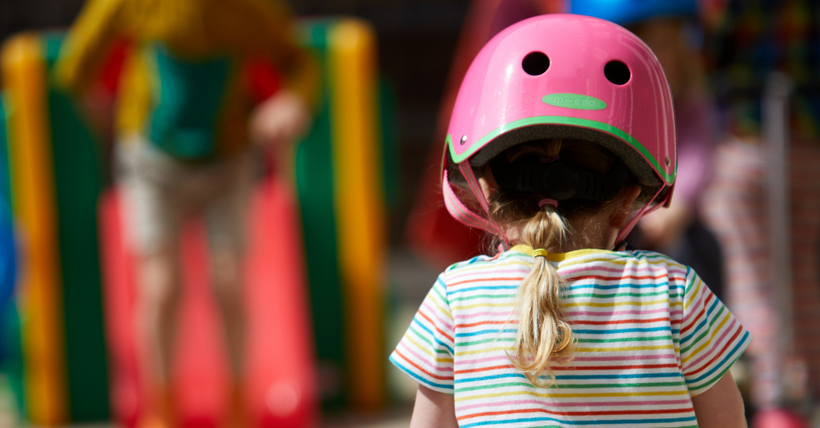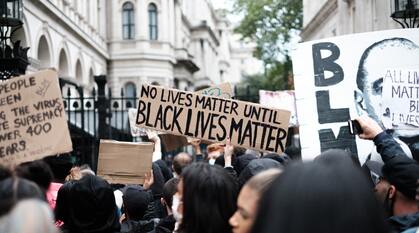Strengthening children’s rights: UNCRC bill secures Royal Assent in Scotland
Sarah Komashko explains the history and implications of the UNCRC bill, and why it matters to Quakers.

In a success for children's rights in Scotland, the United Nations Convention on the Rights of the Child (UNCRC) (Incorporation) (Scotland) Bill officially received Royal Assent on 16 January 2024 and will come into force on 16 July 2024. This is a significant milestone in the journey towards ensuring the wellbeing of every child in the nation, and builds on years of advocacy by organisations including Quakers in Scotland and our coalition partners Together (the Scottish Alliance for Children's Rights).
What is the UNCRC?
The UNCRC is the world's most ratified human rights treaty, with every UN member nation except the USA having signed up to be bound by it. It covers rights for children such as:
- The right to be protected from violence.
- The right to have their own thoughts and beliefs.
- The right to good quality health care, good food and clean water.
- The right to an education which develops the child's personality, respect for others' rights and the environment.
This is a vital framework for protecting and enhancing the lives of children worldwide.
What has Scotland done about it?
When the UK ratified the UNCRC in 1992, it became subject to a duty to make the rights contained in the convention enforceable. This has not yet happened at a UK level, but following work by Together and the Scottish Children and Young People's Commissioner, the Scottish Government published the UNCRC Bill in 2020, with the aim of incorporating the UNCRC into Scots law and making it really effective in practice for Scotland's children. The Scottish Government drew on international experiences to ensure a proactive culture of children's rights across local and national government; and to give ways to complain to a judge if any child's rights are breached.
The Parliamentary Engagement Working Group of Quakers in Scotland decided that it was important to be part of the conversation around this bill, and worked with Together and other civil society organisations to respond. In particular, in our response to the consultation on the UNCRC Bill, Quakers in Scotland emphasised that the current practice of armed forces visits to schools was contrary to the rights of children in Scotland. This shows the type of impact that the incorporation of the UNCRC can have.
Incorporation into Scottish law
All Members of the Scottish Parliament (MSPs) voted in favour of the UNCRC Bill, and it originally passed in March 2021. However, it was then subject to a legal challenge, as the UK Government felt that parts of the UNCRC Bill went beyond what the Scottish Parliament is empowered to do. The Supreme Court decided that this was correct, and some sections of the Bill went beyond the Scottish Parliament's powers.
Following this ruling, work was done to update the UNCRC Bill and restrict its scope. The new scope means that the UNCRC Bill's compatibility duty only applies to legislation originating from the Scottish Parliament, and not to UK legislation even if this falls within an area which is devolved to Scotland. While this does limit the scope, it is important to remember that organisations operating in Scotland (and elsewhere in the UK) do still have the duty to comply with the UNCRC under the terms of the Convention itself – but there isn't the layer of court protection and potential remedy which applies to Acts of the Scottish Parliament.
Why does this matter to Quakers, and what happens next?
Quakers in Britain have a proud history of advocating for children's rights, from challenging militarisation in schools to campaigning for equal protection from assault. The UNCRC Bill aligns with Quaker values of equality, justice, and the recognition of the inherent worth of every individual.
By supporting this legislation, Quakers contribute to the creation of a society that actively upholds the rights of its youngest members, fostering a culture of compassion, understanding, and social responsibility. The UNCRC also protects key areas such as good food and clean water which impact other human rights such as the right to a healthy environment, so has potentially wider implications for all individuals and not only children.
Looking ahead, the UNCRC Act will come into force in 6 months' time. Quakers in Scotland and our partners at Together look forward to the tangible impact this legislation will have on the lives of children – and on all of us by extension! The incorporation of the UNCRC into Scots law is a testament to the power of collective advocacy and a commitment to creating a better future for generations to come.
While ratification of the UNCRC signals an international commitment to children's rights, incorporation makes countries accountable at a national level for their implementation. We hope that the UK Government will look to the example of Scotland and signal a similar commitment to protecting children's rights.


